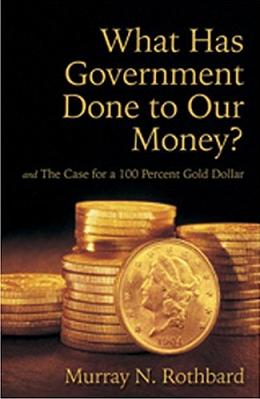The Ethics of a Gold Standard

The efficacy of a metallic monetary system is beyond dispute at least among real economists which eliminates just about 95% of whom are now engaged in the “profession.” Money, which gold is, allows for specialization, the division of labor, and provides the means for mankind to escape from barter and, thus, a primitive existence. Like free trade, money naturally integrates mankind both among and between peoples.
A system of central banking with an unbacked paper currency is the antithesis of a gold standard. Manipulation of currencies by central banks, mostly through debasement, hinders trade, creates distortions, and ultimately leads to the dreaded business cycle. Murray Rothbard aptly describes the baneful results of state intervention in the monetary system:
. . . government meddling with money has
not only brought untold tyranny into the world;
it has also brought chaos and not order. It has
fragmented the peaceful, productive world
market and shattered it into a thousand pieces,
with trade and investment hobbled and hampered
by myriad restrictions, controls, artificial rates,
currency breakdowns, etc. It has helped bring
about wars by transforming a world of peaceful
intercourse into a jungle of warring currency blocs.*

While the economic efficiency of a gold standard is important, the ethical case for it is more compelling and was the reason why gold, as money, lasted as a medium of exchange for so long. Gold/money has to be created through honest-to-goodness production and exchange. The often dangerous mining of gold takes labor, capital goods, and land. Turning raw gold into coinage is another process which requires a high level of specialization and production techniques. Both are honest and morally sound activities which make for the betterment of life all around.
…click on the above link to read the rest of the article…